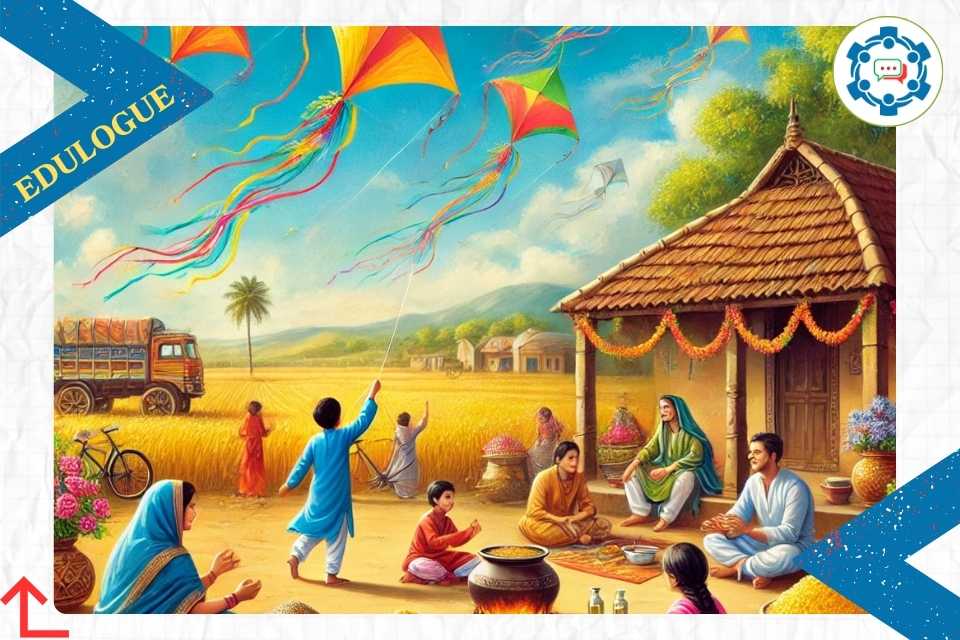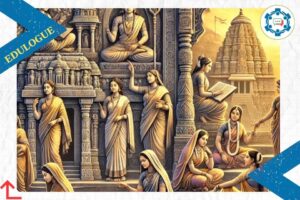
Makar Sankranti, celebrated across India with various regional names like Pongal, Lohri, and Bihu, is much more than a harvest festival. It marks the transition of the sun into the zodiac sign of Capricorn (Makara) and is celebrated as a time of renewal, hope, and gratitude. While it holds great cultural and agricultural significance, Makar Sankranti also offers profound lessons for education, especially in fostering holistic growth among learners.
A Festival of Gratitude and Reflection
At its core, Makar Sankranti teaches us the importance of gratitude. Farmers thank nature for a bountiful harvest, reminding us to appreciate the resources and efforts that sustain us. In an educational context, this could translate into encouraging students to reflect on what they are grateful for—whether it’s the support of their teachers, the opportunities to learn, or even the role of teamwork in their growth.
Practical Tip: Teachers can dedicate a session to gratitude journaling or storytelling, where students share their thoughts on what they are thankful for. This simple activity fosters emotional well-being and builds a positive classroom environment.
The Spirit of Community
Makar Sankranti is a community festival. People come together to prepare traditional sweets, fly kites, and participate in cultural rituals. Similarly, education should emphasize the importance of collaboration and collective learning. Celebrating cultural festivals in schools creates opportunities for students to work together, share responsibilities, and appreciate diversity.
Example: Organizing a kite-making competition or a group activity centered around the festival allows students to learn teamwork and problem-solving while also connecting with cultural roots.
Lifelong Learning and Renewal
Makar Sankranti symbolizes a new beginning as the sun enters a new phase. This idea aligns beautifully with the concept of lifelong learning. Education should instill in students the value of continuous growth and the courage to embrace change. Just as farmers prepare their fields for the next season, students should be encouraged to view challenges as opportunities for growth.
Practical Activity: Educators can inspire students to set learning resolutions for the year. For example, exploring a new hobby, improving a specific skill, or reading a certain number of books. Such goal-setting promotes intrinsic motivation.
Respecting Nature and Sustainability
The festival is deeply connected to nature, with its roots in agricultural practices. Similarly, education can use Makar Sankranti as a gateway to teach environmental awareness. Discussing sustainable practices like crop rotation, organic farming, or conserving water during festive activities can inspire young minds to respect and protect the environment.
Integration Example: Teachers can organize a science project on renewable energy sources or a social studies discussion about traditional agricultural methods in India.
The Value of Balance
Kite flying, a central activity during Makar Sankranti, is not just a fun pastime but a lesson in balance and precision. It teaches patience, focus, and the need to adapt to changing winds. Similarly, education should prepare students to balance knowledge with values, and individual aspirations with societal needs.
Metaphor for Learning: Educators can use kite flying as an analogy to explain complex ideas like the balance between freedom and responsibility or the importance of adapting to life’s challenges.
By weaving cultural traditions into educational practices, we create a bridge between the past and the future. Makar Sankranti, with its rich symbolism and life lessons, offers an excellent opportunity to foster values, curiosity, and a sense of community among learners. After all, education isn’t just about books—it’s about connecting with the world, one kite at a time.
Further Readings
- Kumar, A. (2020). Education and Indian Culture. Journal of Educational Perspectives, 45(3), 150-165.
- Sharma, R. (2018). The Role of Festivals in Holistic Education. Indian Educational Review, 56(2), 89-105.
- Singh, N. (2015). Traditional Knowledge Systems in Modern Education. New Delhi: NCERT Publications.


